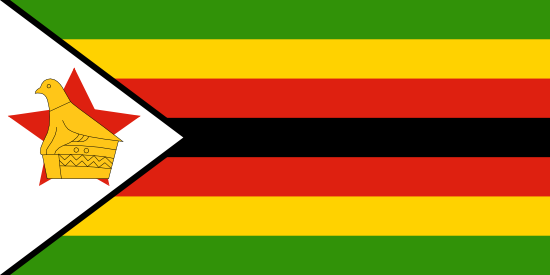Nigeria Domestic Issues
Current political situation: mass protests spread
Since the beginning of October 2020, young people have taken to the streets in several cities in Nigeria to demonstrate against the police violence of the “Special Anti-Robbery Squad (SARS)”. The special unit “SARS” has been criticized for its brutal actions for years. She is particularly accused of extortion, torture, rape, murder and the arbitrary arrest of people.
SARS was founded by the government in 1992 to combat the high crime rates in the country at the time. The original purpose of the special police unit was to curb armed robbery and other violent theft. However, the special task force was repeatedly accused of serious human rights violations. As early as 2016, Amnesty International reported in its report of extortion, torture, rape, kidnapping and murder by the “SARS”. In its latest report from 2020, Amnesty documented more than 80 cases from January 2017 to May 2020 in which “SARS” arbitrarily arrested, tortured or killed people. Since the end of 2017, the hashtag #EndSARSprotested again and again against the police violence by SARS and demanded its dissolution. Although an anti-torture law has existed in Nigeria since 2017, not a single SARS police officer has been held accountable for his actions.
The protests by young adults in October 2020 began peacefully at first. The demonstration was triggered by a video that circulated on social networks. The video shows how SARS police officers beat a young man to death and then steal his car.
Recently, videos have been circulating on social networks again and again, in which SARS police arrest young Nigerians and accuse them of theft or internet fraud. Mostly the so-called “Yahoo Boys” are particularly affected. These are the young, up-and-coming adults who often work in the IT industry, have earned a certain amount of wealth and are easily recognized by their clothes, fast cars and modern cell phones and laptops.
According to commit4fitness, the uprising of the youth joined quickly to more and more youngsters across the Nigeria. Fast, mobile, well connected via Twitter and WhatsApp, they took to the streets in all of the country’s major cities. The demonstrators organized themselves without central leadership, but with a lot of IT know-how and were also supported by the diaspora.
The young demonstrators are calling for the SARS crimes to be fully investigated and for far-reaching police reforms. You have the following five requirements in particular:
- Release of all detained SARS opponents
- Justice for all victims of police violence
- Compensation for the families of victims of police violence
- Appointment of an independent investigation committee within ten days
- Police and psychological training for SARS officers and higher salaries.
In mid-October, when the protests do not subside, President Buhari had the special unit SARS resolve to calm the situation. However, the protesters are not satisfied with this reaction from the Nigerian government and they continue to call for a comprehensive reform of the Nigerian police force and continue their protests.
After almost two weeks of protests, the authorities imposed a twenty-four-hour curfew on October 21, 20 in the metropolis of Lagos. On the evening of the same day, soldiers at the Lekki toll booth in Lagos opened fire on peaceful demonstrators who, despite the curfew, had refused to leave a toll booth that had been occupied for days and to observe the curfew. In response to the police’s brutal crackdown, some demonstrators devastated several shopping malls in Lekki. According to Amnesty International, 12 demonstrators were killed and many more injured in these clashes.
In his first public statement on the unrest, President Muhammadu Buhari urged the youth to stop the demonstrations and enter into dialogue with the government. However, he did not respond to the shooting of the demonstrators and showed no sympathy for the victims. His statement did not give the impression that something will soon change for the better in Nigeria and has therefore met with international criticism.
The situation remains tense. The protests are now directed not only against police violence, but also against the Buhari government as a whole. 60% of the people in Nigeria are under 24 years old. The young protesters are demanding more social progress, more jobs for young people and higher wages from the government. A photo documentation from CNN impressively shows how Nigerian youth protested against police violence and took to the streets for good governance. The Crisis Group points out that the protests are an early warning act that should serve as a wake-up call for the government to make radical improvements in governance, job creation, poverty reduction and the delivery of public services. According to Crisis Group, if the Buhari government ignores this wake-up call, a serious youth uprising is inevitable in the future.



